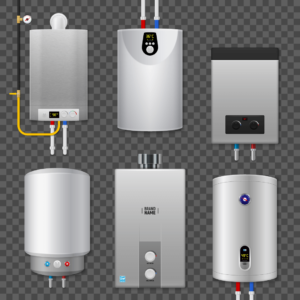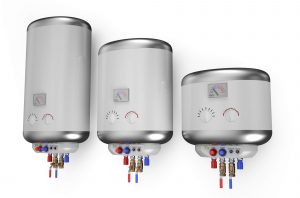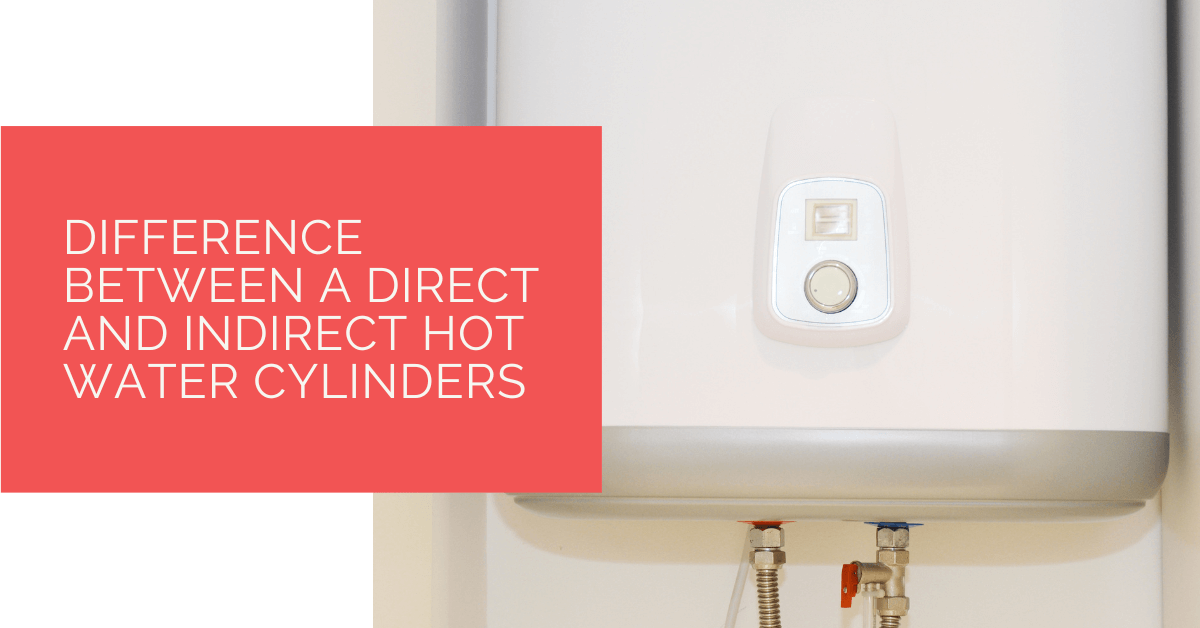If you’re in the market for a new heating system or looking to upgrade your existing one, it’s essential to grasp the fundamentals of hot water cylinders. These integral components are crucial in heating and storing water for your home. In this article, we’ll shed light on two primary types of hot water cylinders, direct and indirect, to provide clear and accessible information to help you make an informed choice.
Before delving into the specifics of direct and indirect cylinders, let’s familiarize ourselves with the basic principles of central heating systems. Typically, central heating systems rely on a heat source, such as a boiler or furnace, to generate warmth by burning fuels like gas or oil. This heat is distributed throughout your home via pipes or ductwork, eventually reaching a water storage unit to provide domestic hot water. Now that we have this foundational understanding, we can explore the key differences between direct and indirect hot water cylinders and help you decide which suits your needs best.
Contents
Key Takeaways
- Hot water cylinders are in high demand in the UK due to their convenience for various purposes, and the market is expected to grow by 5.7% by 2025.
- There are two main types of hot water cylinders: direct and indirect.
- Direct cylinders use electric immersion heaters for water heating, while indirect cylinders utilize a heat exchanger connected to a boiler. The choice between them depends on factors like property size and heating system.
A Quick Overview of Central Heating
Before knowing the fundamentals of the cylinder types, it is crucial to becoming accustomed to the typical water heating process. This way, you can be more aware of choosing the right heating system and components.
Here’s how most central systems function for the purpose of heating water:
- There is one source of heat generation located in a suitable room like a basement
- These heat sources can be a boiler or furnace
- In most cases, the generation of heat takes place by burning fossil fuels
- Hot water or steam passes through pipes or ductwork throughout the building
- This steam passes through the water storage, which results in domestic hot water
In most cases, you can generate this heat using fuels like gas or oil. Due to the convenience and ease of utility, most homeowners opt for this type of heating.

Hot Water Cylinders
In simple words, hot water cylinders serve the purpose of water heating and storage. There are two main types of such cylinders — vented and unvented.
A vented cylinder receives water from a separate header tank. You can observe such a tank in places like an attic.
Cold water flows to this cylinder by virtue of gravity. Usually, a vent pipe connects the overhead tank and cylinder. Hence, these cylinders require a special gravity-oriented arrangement.
On the other hand, unvented cylinders do not need a header tank. They receive water from the mains at a set pressure. So, before contemplating the choice of a direct and indirect cylinder, you should decide between a vented or unvented arrangement.
Direct Hot Water Cylinder
This type of cylinder consists of the following distinguishing components:
- Immersion heater or thermal emitter
- Shell casing
- Mounting arrangement
The water heating process in this cylinder takes place on the principle of electric immersion. The heaters located at the top and bottom are responsible for generating heat.
Hence, direct cylinders do not have a connection with a boiler. Gas or electric power activates the heaters for heat transfer between the element and water.
Indirect Hot Water Cylinder
These cylinders require the following components to operate:
- Boiler
- Heat exchanger
- Thermostat
- Airlock
In an indirect water cylinder, you will find a secure copper coil inside the water tank. This coil works as a heat exchange media connected to the boiler.
The boiler pumps hot water through the coil that indirectly heats water stored in the cylinder. There is always a separation between water in the coil and storage. You can adjust the incoming water temperature from the boiler using a thermostat.

Direct vs Indirect Hot Water Cylinder
Now that you know the working of both cylinder types, it is crucial to understand the main differences.
This table can simplify your decision of choosing the most suitable water storage option:
| Parameter | Direct Cylinder | Indirect Cylinder |
| Initial cost | Low | Comparatively high |
| Ease of installation | High | Low |
| Cost-effectiveness | Medium | Comparatively high |
| Requirement of Boiler | No | Yes |
| Suitability | Small to medium homes | Large houses or buildings |
The choice of these thermal stores is subjective. Indirect cylinders can be a good choice if you have a large property and a set boiler or central heating system.
On the other hand, if you possess a consistent and reliable source of electricity, choosing direct cylinders can prove suitable.
Fortic cylinders can be an apt choice if you want a different alternative. These water storage units have an inbuilt cistern. Hence, you do not need a separate arrangement, which is necessary for a vented cylinder. Notably, Fortic cylinders are available in direct and indirect options.
Heat Pump Source: Reliable Heating and Cooling Solutions
At Heat Pump Source, we take pride in our unwavering commitment to serving the UK with top-tier HVAC solutions. From the efficiency of heat pumps and the cool relief of air conditioning to the warmth of boilers, radiators, and underfloor heating, our dedicated team is always at the forefront of innovation. We understand the unique needs of every household and business, and we strive to provide dependable health and cooling products and services that are tailored just for you. Ensuring your comfort and satisfaction is our utmost priority. Whether you have questions, need guidance, or require support, we’re always here to assist. Please don’t hesitate to contact us; we’re eager to be of service.
In a Nutshell
Direct cylinders have immersion heaters that increase the temperature of the water with the help of electricity or gas. On the contrary, indirect cylinders have a heat exchanging coil that receives hot water from a boiler.
This coil indirectly heats the water stored in the tank. Hence, the heating mechanism plays a vital role in differentiating both cylinders. The choice between these hot water cylinders is straightforward. Opt for direct cylinders if you want a simple heating tank suitable for small-scale utility.
Choose an indirect water cylinder if you possess a large property with a central boiler heat system. In any circumstance, always avail services of expert professionals for hassle-free installation.
About the Author
At Heat Pump Source, our articles are the product of a collaborative effort among a team of highly skilled HVAC experts. Our dedicated professionals, hailing from diverse backgrounds in heating, ventilation, air conditioning, and refrigeration, contribute their extensive knowledge and experience to every piece of content. This multidisciplinary approach ensures comprehensive coverage. Our commitment is to deliver authoritative, reliable, and tailored advice to meet the unique needs of every household and business across the UK.

